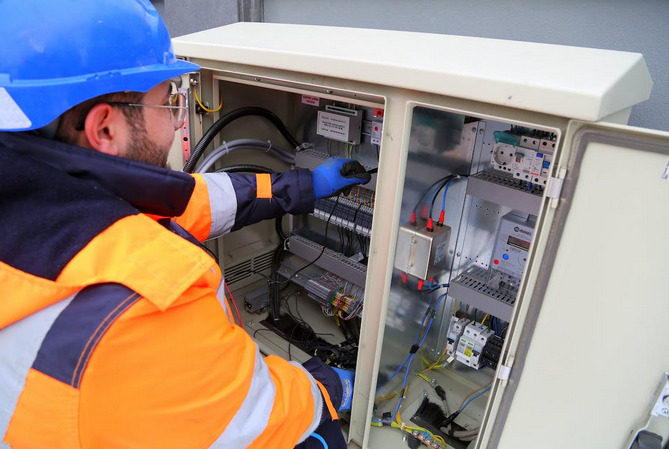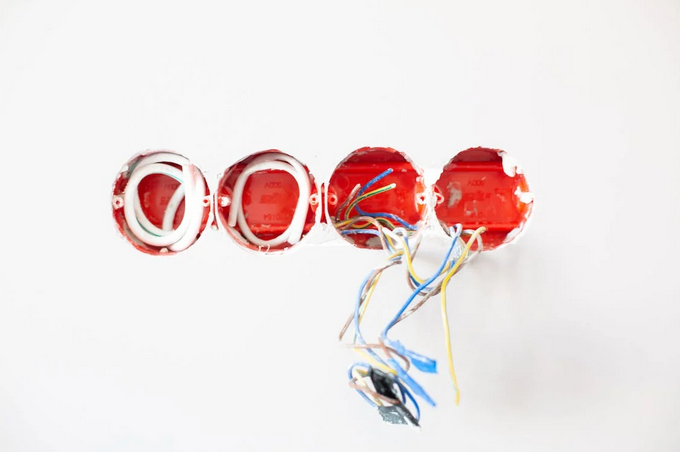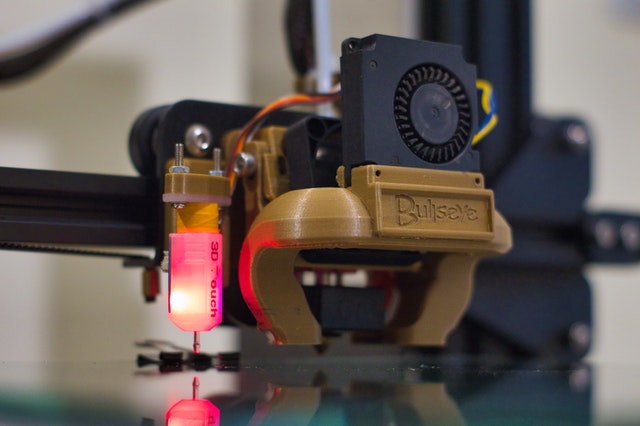Red Flags to Avoid When Looking for a Website to Buy Instagram Likes
Buying Instagram likes can feel like stepping into a crowded market. Plenty of sellers shout about fast results, but not all can be trusted. That’s why checking reviews on top sites to buy Instagram likes helps guide safer choices before pulling out your wallet. Still, even with recommendations, many sketchy platforms lurk around waiting to trick buyers. Recognizing the early signs of a shady website can save both your account and your budget. Let’s break down the common red flags you should never ignore.
No Transparency in Pricing
One classic warning sign is unclear or shifting prices. If a site promises one package but changes the numbers halfway through checkout, that’s a red flag. Trustworthy sellers keep their costs consistent and clear. Some shady platforms lure buyers with low initial prices. Then they add surprise charges for “premium delivery” or “extra safety.”
Lack of Real Customer Support
A reliable website always offers some way to reach out for help. If there’s no live chat, no email, or even worse, no response, then the service is suspect. Customer support is the safety net buyers rely on. If things don’t go as you’d expect, you want someone to talk to. A shady site often ghosts customers after payment, leaving you stuck with nothing but silence.
Over-the-Top Promises

Be cautious of platforms shouting about instant fame. No one can make an account go viral in five minutes with a single package. Those exaggerated claims reveal more hype than substance. Real growth takes consistency and time. A service promising thousands of likes overnight sounds impressive, but it’s just not believable.
Suspicious or Stolen Reviews
Reviews can say a lot, but only if they’re real. If every review sounds identical, overly positive, or suspiciously vague, chances are they’re fake. Authentic feedback usually contains a mix of praise and criticism. Shady sellers sometimes steal reviews from other platforms to look more reliable. A quick copy-paste job might fool casual visitors, but it rarely holds up to closer inspection. Fake reviews show the company wants appearance without accountability.
No Secure Payment Options

A secure website will always provide safe payment gateways. If a seller only accepts sketchy transfers or demands cryptocurrency without offering trusted methods, that’s a clear warning sign. Safety should never feel like a gamble. Even worse are sites that ask for sensitive details they don’t need. If you’re asked for your Instagram password, slam the digital door shut. That request alone should tell you the risk isn’t worth it.
Shady websites often rely on quick tricks to separate buyers from their money. No clear prices, no real support, overblown claims, unsafe payments, and fake reviews are all signs worth spotting early. Recognizing them puts the power back in your hands. Investing in Instagram likes isn’t automatically risky, but choosing the wrong site is. Stick with platforms that provide clarity, security, and accountability. A little caution goes a long way in protecting your account and your peace of mind.…











 To be a
To be a  Lastly, if you want to cheat in a game and don’t mind using a hacked version of the title, you can look for cracked versions online. These versions usually come with cheats enabled by default, allowing you to gain an unfair advantage over your opponents. Just remember that it’s illegal to download these versions and that you should always use them at your own risk.
Lastly, if you want to cheat in a game and don’t mind using a hacked version of the title, you can look for cracked versions online. These versions usually come with cheats enabled by default, allowing you to gain an unfair advantage over your opponents. Just remember that it’s illegal to download these versions and that you should always use them at your own risk.
 One of the most common mistakes people make is not backing up their data. If your computer crashes, you could lose important files and documents. Computer viruses can also corrupt your data, so it’s essential to have a backup plan in place.
One of the most common mistakes people make is not backing up their data. If your computer crashes, you could lose important files and documents. Computer viruses can also corrupt your data, so it’s essential to have a backup plan in place. Many people also make the mistake of downloading unsafe files. These files can contain viruses or malware that can damage your computer. Only download files from trusted websites, and be sure to scan them with your anti-virus software before opening them. If you’re not sure if a file is safe, it’s better to err on the side of caution and not download it.
Many people also make the mistake of downloading unsafe files. These files can contain viruses or malware that can damage your computer. Only download files from trusted websites, and be sure to scan them with your anti-virus software before opening them. If you’re not sure if a file is safe, it’s better to err on the side of caution and not download it.
 When it comes to website hosting, you have a few different options. You can choose shared hosting, which is the most affordable option, or VPS hosting, which is more expensive but gives you more control. If you expect an increase in traffic, you should consider VPS hosting. VPS hosting is a type of web hosting that uses virtual private servers. This means that each website is hosted on its server, which is partitioned from other websites. This gives you more control over your website and allows you to run more powerful applications. However, it also comes with a higher price tag than shared hosting.
When it comes to website hosting, you have a few different options. You can choose shared hosting, which is the most affordable option, or VPS hosting, which is more expensive but gives you more control. If you expect an increase in traffic, you should consider VPS hosting. VPS hosting is a type of web hosting that uses virtual private servers. This means that each website is hosted on its server, which is partitioned from other websites. This gives you more control over your website and allows you to run more powerful applications. However, it also comes with a higher price tag than shared hosting. Now that you know all about VPS hosting, you may be wondering how to find the best VPS hosting service for your
Now that you know all about VPS hosting, you may be wondering how to find the best VPS hosting service for your 
 An Android Tablet offers advanced technology at affordable prices. Many of these devices are even more powerful than some laptops that cost much more money. Although the screen size may be smaller than a laptop, the features and performance of an Android Tablet make it an excellent choice for many people.
An Android Tablet offers advanced technology at affordable prices. Many of these devices are even more powerful than some laptops that cost much more money. Although the screen size may be smaller than a laptop, the features and performance of an Android Tablet make it an excellent choice for many people.



 Another Android app that doesn’t play to its strengths is this tip calculator from TradeFields. There are hundreds of tip calculator apps out there, but this one is the best. It has the best user interface and is foolproof. For instance, you can pull up a number to calculate the 17.5% tip percentage for everyone on the $127.56 dinner bill. It is such a great finance app to keep the cash divided fairly when hanging out with friends.
Another Android app that doesn’t play to its strengths is this tip calculator from TradeFields. There are hundreds of tip calculator apps out there, but this one is the best. It has the best user interface and is foolproof. For instance, you can pull up a number to calculate the 17.5% tip percentage for everyone on the $127.56 dinner bill. It is such a great finance app to keep the cash divided fairly when hanging out with friends. Pocketools is the best free Android App that offers a simple currency converter with a simple interface. This app also can provide more information about currencies needed, especially for travelers. Using this app, you can see currency trends for five years, chart currencies against each other, convert currencies to other worldwide currencies. You can also do just about anything else you can think of as long as it has to do with one of the currencies.
Pocketools is the best free Android App that offers a simple currency converter with a simple interface. This app also can provide more information about currencies needed, especially for travelers. Using this app, you can see currency trends for five years, chart currencies against each other, convert currencies to other worldwide currencies. You can also do just about anything else you can think of as long as it has to do with one of the currencies.



 You want to check whether it includes all of the gear that you will need. An integrated credit card payment method may accelerate delivery time and enhance customer support. Additionally, it removes the need to purchase any new gear and saves you a substantial quantity of money. The purpose of this Restaurant POS system is to handle stock. The stock of any restaurant has to be handled carefully.
You want to check whether it includes all of the gear that you will need. An integrated credit card payment method may accelerate delivery time and enhance customer support. Additionally, it removes the need to purchase any new gear and saves you a substantial quantity of money. The purpose of this Restaurant POS system is to handle stock. The stock of any restaurant has to be handled carefully.
 One of the most significant changes has been observed in education, where students are defined by technology, and teachers are continually using technological advancements to teach things more easily. It is undoubtedly because of this development that technologies in education are now a means of active learning. Moreover, all these methods consider all business and education levels, so students in academic periods are going through this revolutionary change.
One of the most significant changes has been observed in education, where students are defined by technology, and teachers are continually using technological advancements to teach things more easily. It is undoubtedly because of this development that technologies in education are now a means of active learning. Moreover, all these methods consider all business and education levels, so students in academic periods are going through this revolutionary change. Online applications used by teachers to maintain contact with students have improved significantly. Virtually all educational institutions have introduced these applications that help the teacher convey urgent and essential notices to students and parents in a much more convenient manner. Implementing these technological tools has improved communication flow and allows teachers to send snapshots of classroom work to parents. It ensures replication of classroom work in a much more in-depth manner, allowing students to understand the relevant courses.
Online applications used by teachers to maintain contact with students have improved significantly. Virtually all educational institutions have introduced these applications that help the teacher convey urgent and essential notices to students and parents in a much more convenient manner. Implementing these technological tools has improved communication flow and allows teachers to send snapshots of classroom work to parents. It ensures replication of classroom work in a much more in-depth manner, allowing students to understand the relevant courses. Individual Learning Experiences
Individual Learning Experiences
 Early variations of watches allowed individuals to feed off of data, see different time zones, and perform standard calculations. Many combinations of these features were created to appeal to a specific group of consumers. However, it seems that these types of personal gasoline devices work to attract customers. Now that it is possible to miniaturize many electronic devices, manufacturers are looking to turn personal watches into wearable computing devices.
Early variations of watches allowed individuals to feed off of data, see different time zones, and perform standard calculations. Many combinations of these features were created to appeal to a specific group of consumers. However, it seems that these types of personal gasoline devices work to attract customers. Now that it is possible to miniaturize many electronic devices, manufacturers are looking to turn personal watches into wearable computing devices.  Another use of these watches is to keep track of your activities. For example, once you have completed a workout, the data can be uploaded to a computer or sent to the World Wide Web to create a record of your workout activities for analysis. The way it works is designed to accommodate an intelligent, phone-like experience right on the device you’re wearing, but that’s not all. You could operate several Google-specific apps, for example, Google Maps and Hangouts. Imagine being able to chat or take a look at a map from this smartwatch. The next move will be to insert a translucent display to examine a product.
Another use of these watches is to keep track of your activities. For example, once you have completed a workout, the data can be uploaded to a computer or sent to the World Wide Web to create a record of your workout activities for analysis. The way it works is designed to accommodate an intelligent, phone-like experience right on the device you’re wearing, but that’s not all. You could operate several Google-specific apps, for example, Google Maps and Hangouts. Imagine being able to chat or take a look at a map from this smartwatch. The next move will be to insert a translucent display to examine a product.

 Using artificial intelligence is a specific interest to people in engineering, mechanics, and business. The capability to detect and forecast production plant upkeep and digitize the production procedure represents a massive advantage. For example, General Electric is creating technologies that will predict the demand for repair and maintenance of its plant equipment and track plant production through artificial intelligence.
Using artificial intelligence is a specific interest to people in engineering, mechanics, and business. The capability to detect and forecast production plant upkeep and digitize the production procedure represents a massive advantage. For example, General Electric is creating technologies that will predict the demand for repair and maintenance of its plant equipment and track plant production through artificial intelligence.






